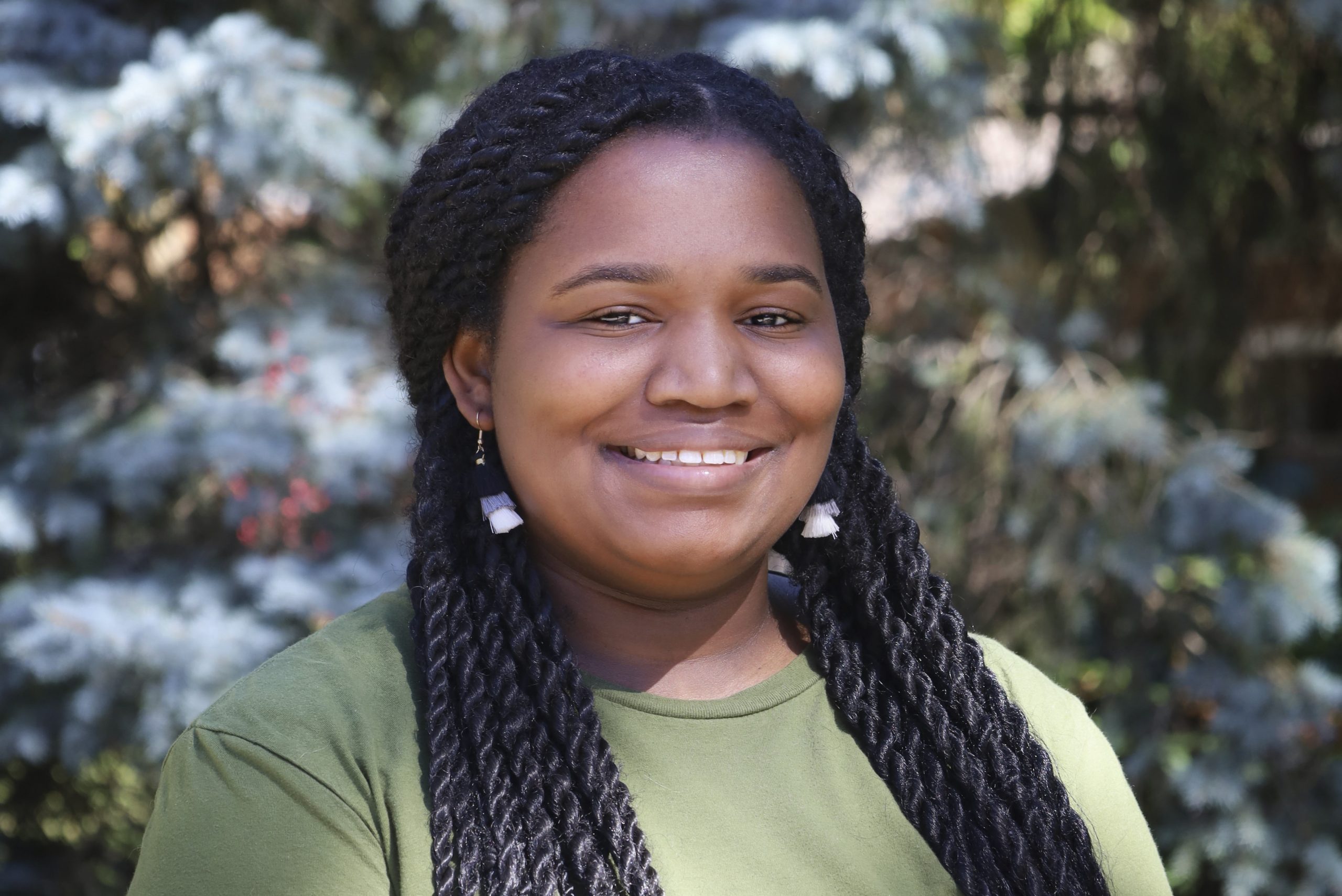In my first year at Goshen College, I felt out of place, like a fraud – for a reason I could not quite grasp. Every time I would get near that answer, it drifted further away. Towards the end of my first semester, I decided to become involved in more clubs and activities. I figured that had to be the reason I felt out of place.
My sights eventually landed on Black Student Union (BSU), a club I did not know existed at Goshen College. Somehow in the whirlwind of COVID-19, homework, and one-on-one meetings with the advisor of BSU, I became a leader. On more than one occasion, since becoming a leader, other Black students who feel like they do not belong have reached out to me.A part of Goshen College’s mission statement is to “seek inclusive community and transformative justice.” This part of the mission statement appeals to those marginalized in society. GC wants students of color to feel like they will be embraced by an organization that sees and understands the intersection of identities and the core of who they are.
Goshen College’s mission statement is currently, without a doubt, unfulfilled.
It is why I am being reached out to.
It is why microaggressions are prevalent on this campus.
It is why there are few to no professors and faculty of color.
And it is why I felt like a fraud – not because I could not find a club to join.
When George Floyd was murdered, people from all walks of life advocated for a Black man who unjustly lost his right to speak for himself. His death brought the Black Lives Matter movement back into the media spotlight, creating an influx of performative Black allies.
Another killing of a Black person soon followed, and their activism later disappeared, including among GC staff and students. Professors no longer allowed space to support the few Black people in their classes. White students became quiet. Spaces like BSU and Latino Student Union, on the other hand, became sacred because that was the only way people of color were heard.
People of color are not asking for the spotlight to always shine on them. We are asking to be seen and valued as humans. It is difficult to get into the “campus spirit” when that same campus makes minorities feel unwelcome.
Goshen College needs to do better. It is not my job or any person of color’s job to eliminate racism or fix the deep-rooted issues embedded into the campus. We should not be tasked with teaching people to empathize and understand racism. The information and statistics are not new.
For those reading: Know that this is not solely a Black Student Union issue. I have spoken with people of color who have brought up concerns about their experiences. Some of these include professors affirming their white counterparts while ignoring Black students’ existence, cultural appropriation from white peers, and exclusion from white friend groups.
Our experiences are drastic but similar in the way they remain with us. They transform how we feel about ourselves and demonstrate to us that we do not belong here.
Being anti-racist is work that will never end. Although engaging with social media, donating, and attending protests are essential, it does not stop there. It is everyday actions: who you surround yourself with and how you act when no one is watching.
Why did it take a man dying with a police officer kneeling on his neck for you to think that this should not be happening – only to stop embracing those same people shortly after? Why is the only time you notice people of color, only when there is a major headline?
Perhaps, when these questions no longer have to be asked, just then, will minorities at GC feel like the global majority that they are.




